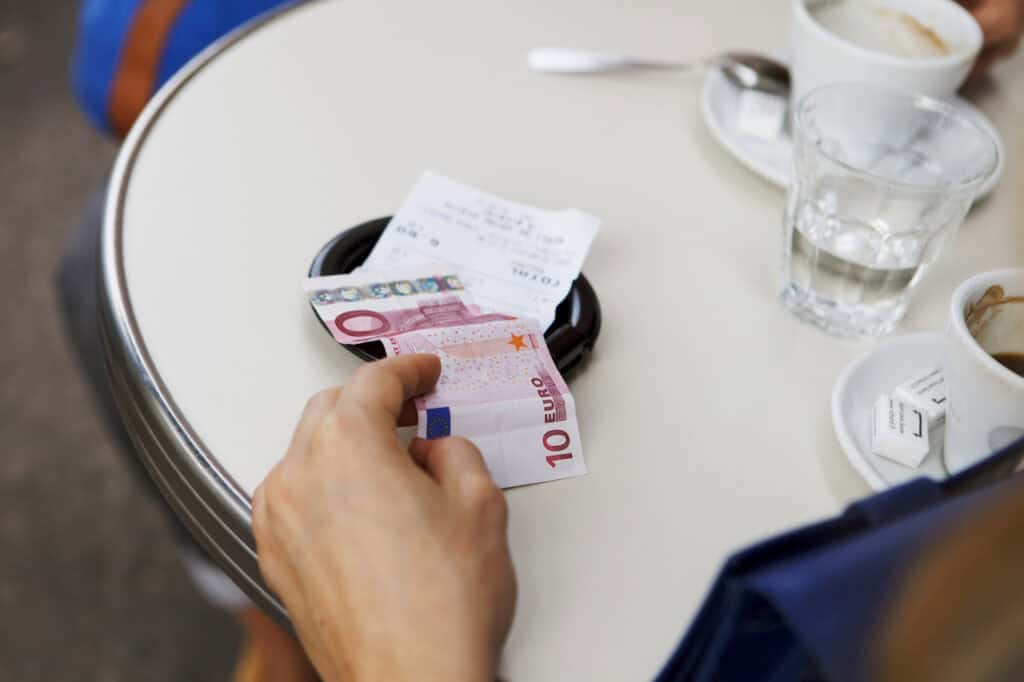We may earn money or products from the companies mentioned in this post. This means if you click on the link and purchase the item, I will receive a small commission at no extra cost to you ... you're just helping re-supply our family's travel fund.

Politeness does not travel as easily as a passport. Behaviors that feel thoughtful or friendly in the United States can land very differently in places shaped by other histories and social rules. A warm smile, a big tip, or a casual thumbs-up may read as awkward, patronizing, or flat-out rude. None of this makes anyone a bad guest, but it does explain why some interactions abroad feel strangely tense. Culture sets the script, and the lines are not the same everywhere.
Tipping As A Sign Of Gratitude

In the United States, tipping generously signals appreciation and respect for service. In parts of East Asia, especially Japan, unasked-for tips can feel confusing or even insulting, as if implying the worker is underpaid or in need of charity. Many staff are trained to refuse extra cash and may chase a customer down to return it. A sincere thank-you or small gift often carries more grace than money left on the table.
Wearing Shoes Indoors

Keeping shoes on inside a home seems practical in many American households and can even be framed as courteous in a fast-moving visit. In countries such as Japan and across parts of Northern Europe and the Middle East, stepping inside without removing shoes tracks mud and street dust onto spaces treated as almost sacred. Hosts may be too polite to correct the oversight, but the quiet discomfort can linger long after the guest has left.
Talking Loudly In Public

Animated conversation and laughter in restaurants, trains, or hotel lobbies fit neatly into American ideas of warmth and openness. In places where public space is treated as shared quiet, such as many Japanese trains or Northern European trams, raised voices read as inconsiderate rather than friendly. Fellow passengers may not complain out loud, yet the sudden volume breaks an unspoken compact about keeping personal life from spilling over everyone else.
Big Smiles And Fast Familiarity

In the United States, quick smiles, casual compliments, and jumping to first names signal ease and goodwill. In more formal cultures, or societies where emotional reserve protects privacy, that same breeziness can feel intrusive or shallow. Colleagues in parts of Germany, France, or East Asia may prefer measured greetings, family names, and gradual trust-building. What one traveler reads as warmth, another quietly files under oversharing with a stranger.
Constant Small Talk With Staff

Chatting with baristas, taxi drivers, and front-desk clerks is often framed as respectful in the U.S., a way to show that workers are seen as people, not just roles. In some countries, service interactions are expected to be efficient, discreet, and tightly bounded. Probing questions about family, politics, or future plans during brief transactions can come off as nosy. Staff may worry about saying something wrong rather than feeling affirmed by the attention.
Thumbs-Up For Approval

A thumbs-up in American settings almost always signals “good job” or “all set.” In parts of the Middle East, Greece, and some other regions, the same gesture has historically carried a vulgar or insulting meaning, closer to an obscene hand sign than praise. Global media is softening some of these interpretations, but in more traditional or older communities the gesture can still trigger confusion or quiet offense instead of shared celebration.
Showing The Soles Of Shoes Or Feet

Propping feet on a chair, stretching out on a sofa, or crossing legs so the sole points at someone can feel casual and relaxed to many Americans. In large parts of the Arab world and across Hindu and Buddhist cultures, showing the sole of a shoe or foot carries a strong association with dirt and disrespect. A gesture meant as comfort may be read as placing the “lowest” part of the body toward another person or a sacred image.
Pointing Directly With One Finger

Pointing clearly with an index finger often feels like a practical way to give directions or highlight a menu item. In parts of Southeast Asia and the Middle East, that same motion is considered rude or aggressive, reserved for animals or scolding. Locals may prefer an open hand or a small nod instead. To someone raised elsewhere, a sharply extended finger can feel more like a command than a neutral gesture.
Eating While Walking Or On Trains

Grabbing coffee, snacks, or full meals on the go fits easily into American routines, especially in cities built around commutes and car cups. In some countries, eating while walking is still associated with a lack of self-control or respect for shared space. On trains in Japan, for instance, strong-smelling foods or noisy snacking can draw frowns. The expectation is that food deserves a focused moment, not a side activity during transit.
Talking Business In Casual Social Settings

In many U.S. circles, slipping work talk into dinners, weddings, or family gatherings can seem ambitious or simply practical networking. In cultures that draw hard lines between professional and private life, this habit reads as intrusive or tone-deaf. Hosts may have curated an evening precisely to escape office pressures. Turning conversation back toward deals and deadlines can feel like an attempt to hijack a shared moment for personal gain.
Over-Explaining Personal Identity And Beliefs

Americans are often encouraged to define themselves openly through politics, identity, or deeply held beliefs, and to share those details quickly in conversation. In more reserved societies, such disclosures can cause discomfort, especially in early interactions. Guests who launch into detailed explanations of personal values may mean to build bridges, yet listeners may prefer to hold those topics until a real relationship has taken root.
Expecting English Everywhere

In much of the world, English is taught as a practical tool, and tourism industries rely on it to function. Some American travelers grow used to being accommodated and may slip into speaking quickly, using slang, or seeming impatient when comprehension lags. In countries that value linguistic effort as a sign of respect, showing no curiosity about local words, or assuming English is the default, comes across as entitled rather than efficient.
Treating Service Workers As “Friends For The Moment”

American service culture often blurs lines, with servers, bartenders, and guides encouraged to perform friendliness and banter. Guests may respond by joking, touching a shoulder, or sharing personal stories, assuming the vibe is mutual. In places where professional distance protects dignity on both sides, this approach can feel like overstepping. Workers may smile through it while quietly wishing the interaction had remained more formal and predictable.